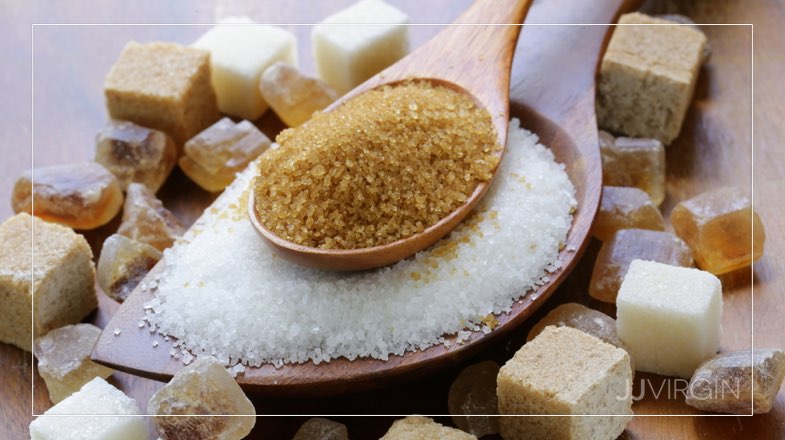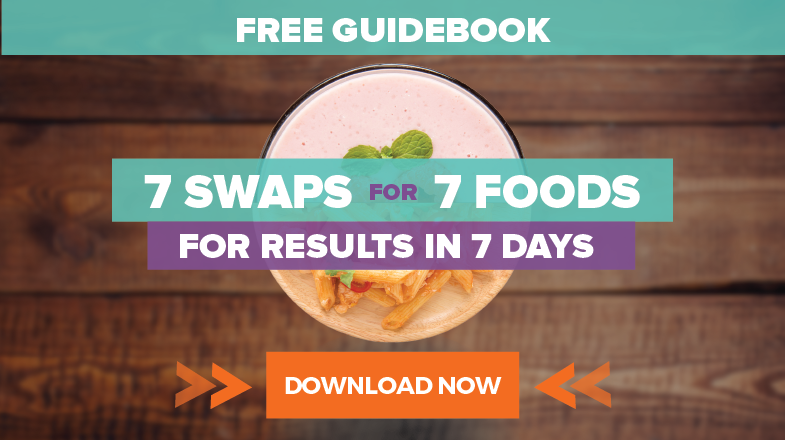This is Part 1 of a 3 part series on sweeteners.
Sugar has deservedly earned a bad rap these days, and we now know artificial sweeteners can create worse havoc than the real stuff. Hardly anyone is gobbling up straight sugar or reaching for pink or blue packets these days.
Manufacturers are well aware of this sweetener paradigm shift. They’ve cleverly cashed in with natural sweetener alternatives carrying pretty names. The healthy-looking packages line supermarket shelves and even your health food store aisles.
Let’s be clear about a few things. Anything ending in “–ose” is sugar. Unfortunately, not all sugars are so easy to spot. That’s why you want to scrutinize ingredients, read labels, and know the sneaky names for sugar. My friend Jonathan Bailor compiled a whopping list of 57 here.
Even armed with that information, I understand how confusing making the right decision can be.
One of my most popular social media questions concerns natural sugar alternatives positioned as healthier options. But are they? Let’s deep-dive into the science behind 4 popular options to uncover the truth about these so-called “better” sugars.
Honey
First, the good news: one study found honey offers vitamins and minerals, as well as other nutrients. Other research found that in normal and overweight people, honey reduces blood lipids, homocysteine, and the inflammatory marker C-reactive protein (CRP). In people with type 2 diabetes, honey lowered plasma glucose levels compared with dextrose and sucrose.
But wait: before you become overly enthusiastic and embrace honey as your new sweetener, let’s clear up a few things.
Studies show that, to get many of these benefits, you’ll need to consume 50-80 grams, or 3–5 tablespoons of honey. Especially if you have blood sugar imbalances, that amount’s drawbacks quickly outweigh honey’s benefits. “Honey is still sugar,” writes Dr. Jonny Bowden in his book The 150 Healthiest Foods on Earth. “If you’ve got blood sugar issues, proceed with caution.”
When honey breaks down in your body, its two simple sugars – glucose and fructose – behave differently. Nearly every cell can use glucose, which raises your blood sugar and signals your hormone insulin to either use it as an energy source or store it as fat. However, fructose, the other sugar honey breaks down into, doesn’t raise blood sugar. Instead, fructose heads straight to your liver.
According to Dr. Jonny Bowden, excessive fructose amounts can create numerous problems, including insulin resistance, high triglycerides, accumulating belly fat (increasing your risk for type 2 diabetes), and non-alcoholic fatty liver disease.
Simply put, honey is one of those dose-dependent foods: what can benefit you in very small amounts can become a threat when you consume larger quantities.
Quality also matters. Those cute bear-shaped honey containers you find on supermarket shelves are a far cry from the stuff our ancestors ate. Researchers found that “over three-quarters of the honey sold in American supermarkets and drug stores may not be what the bees created, but a watered-down, reconstituted hodge-podge of the real deal mixed with other cheaper, less savory, and often less safe ingredients.”
If you use honey therapeutically, skip the inferior grocery store varieties for locally harvested, organic raw honey, which comes loaded with small amounts of nutrients and provides some homeopathic benefits for wounds and allergies.
Regardless, proceed cautiously: you only need about half a teaspoon to do the job.
Coconut Sugar
Determined to milk (no pun intended) the coconut-is-healthy buzz, manufacturers position coconut sugar as a better alternative to high-fructose corn syrup and other sweeteners of which customers are understandably wary.But is coconut sugar really better or just the latest hype?
Compared with table and brown sugars, coconut sugar has impressive amounts of nutrients like zinc and iron, as well as antioxidants. Coconut sugar also contains good amounts of inulin, a type of dietary fiber that acts as a prebiotic.
Among its benefits, clinical research finds prebiotics like inulin support gut health, blood sugar balance, lipid (fat) metabolism, bone mineralization, and immunity, and help prevent colon cancer, fatty liver disease, and obesity.
However, nutrients and inulin aside, let’s not forget coconut sugar is a sweetener. Inulin and nutrients likely lower coconut sugar’s blood glucose impact, but over three-fourths of coconut sugar is still actually sugar. (Nutrients, prebiotic inulin, and antioxidants constitute coconut sugar’s other 22 percent.)
And whereas nearly every cell can use glucose, fructose goes straight to your liver to metabolize. Considering fructose constitutes about 39 percent of coconut sugar, you don’t need much to rack up your quota and overwhelm your liver.
Simply put, coconut sugar isn’t the no-guilt free-for-all some manufacturers might have you believe you can liberally spoon into your coffee or baked goods.
Instead, coconut sugar, like honey, is a slightly better alternative to table sugar. It’s an acceptable occasional “proceed with caution” sweetener. But nutrients aside, it’s still mostly sugar and can create similar health problems.
Agave
I’ve provided very cautious recommendations for honey and coconut sugar, but agave gets a massive thumbs-down. “Why this sweetener still gets any ’healthy’ press is a testimony to its triumph of marketing over science,” as Jonny Bowden, Ph.D., says.
Other experts agree. “Most agave ‘nectar’ or agave ‘syrup’ is nothing more than a laboratory-generated super-condensed fructose syrup, devoid of virtually all nutrient value, and offering you metabolic misfortune in its place,” writes Dr. Joseph Mercola.
Agave can contain up to 90 percent fructose, the most metabolically damaging sugar, one that Mercola calls “far worse than high-fructose corn syrup.”
In one study, Dr. Robert Lustig notes that, among its problems, fructose contributes “to rising rates of obesity, type 2 diabetes, and metabolic syndrome.” Excessive fructose also becomes a key player in non-alcoholic fatty liver disease.
Fructose also makes you fat. One study found fructose converts to fat twice as much as other sweeteners. According to Lustig, about 30 percent of fructose will convert to fat.
If you’ve read my Sugar Impact Diet, you know all about these dangers, and you know how much I despise this bogus health-halo sweetener. Steer far, far away from agave.
Yacón Syrup
Yacón syrup is derived from the yacón plant indigenous to the Andes Mountains. The plant’s shape resembles a yam or sweet potato.
About 50 percent of yacón syrup consists of fructooligosaccharides (FOS), short chains of fructose molecules which naturally occur in foods like onions and garlic. Like inulin (also found in yacón), FOS is indigestible and performs as a prebiotic. Among its benefits, FOS reduces concentrations of the hunger hormone ghrelin.
Regardless, about 35 percent of yacón syrup is fructose, the most metabolically damaging sweetener. While that’s far less than agave, higher amounts of yacón syrup could still potentially create fructose overload and all its repercussions.
Ever since Dr. Mehmet Oz touted it as a potential metabolic game changer, yacón syrup has developed a reputation for fat loss. At least one study supports his claim.
This double blind, placebo-controlled trial with 55 obese pre-menopausal women gave 40 participants yacón syrup and the others a placebo. Both groups stuck with a low-fat diet over 120 days.
The results were impressive. Whereas the placebo group lost less than four pounds, the yacón syrup group lost an average of 33 pounds.
Despite that small study, I’m not so eager to jump on the yacón syrup train. FOS and inulin benefits aside, fructose makes yacón syrup another dose-dependent sweetener. A little bit might provide benefits, but too much can provide a fructose overload. I definitely wouldn’t consider it a fat loss miracle sweetener.
So What Should You Use?
While I’m not crazy about any of these 4 sweeteners, agave is hands-down the absolute worst of the bunch. For most people, I would say to skip all 4.
Sometimes, though, you’ll want to sweeten your coffee or food with something. Sugar’s out and so are artificial sweeteners, and these 4 alternatives aren’t much better.
In the Part 2 blog, I talk about 4 sugar alternatives that don’t create the same havoc and even provide some health benefits. If you’re going to reach for the sweet stuff, I’ll provide specific instructions about what to look for… and what to avoid.






